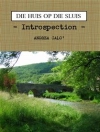Technology has long been an essential consideration in public discussions of the environment, with the focus overwhelmingly on creating new tools and techniques. In more recent years, however, activists, researchers, and policymakers have increasingly turned to mobilizing older technologies in their pursuit of sustainability. In fascinating case studies ranging from the Early Modern secondhand trade to utopian visions of human-powered vehicles, the contributions gathered here explore the historical fortunes of two such technologies—bicycling and waste recycling—tracing their development over time and providing valuable context for the policy successes and failures of today.
Inhoudsopgave
PART I: INTRODUCTION
Introduction: How Old Technologies Became Sustainable: An Introduction
Ruth Oldenziel and Helmuth Trischler
PART II: CYCLING HISTORIES
Chapter 1. Use and Cycling in West Africa
Hans Peter Hahn
Chapter 2. The Politics of Bicycle Innovation: Comparing the American and Dutch Human-Powered Vehicle Movements, 1970s—present
Manuel Stoffers
Chapter 3. Scarcity, Poverty, Exclusion: Negative Associations of Bicycle’s Uses and Cultural History in France
Cathérine Bertho Lavenir
Chapter 4. Who Pays, Who Benefits? Bicycle Taxes as Policy Tool of the Public Good, 1890–2012
Adri de la Bruhèze and Ruth Oldenziel
Chapter 5. Monuments of Unsustainability: Planning, Path Dependence, and Cycling in Stockholm
Martin Emanuel
PART III: INTERSECTIONS
Chapter 6. Bicycling and Recycling in Japan: Divergent Trajectories
William Steele
PART IV: RECYCLING HISTORIES
Chapter 7. Premodern Sustainability? The Secondhand and Repair Trade in Urban Europe
Georg Stöger
Chapter 8. Waste to Assets: How Household Waste Recycling Evolved in West Germany
Roman Köster
Chapter 9. Ecological Modernization of Waste-Dependent Development? Hungary’s 2010 Red Mud Disaster
Zsuzsa Gille
Chapter 10. “Der Kampf um den Abfallstrom.” Conflict and Contestation in Re-Valuing E-Waste in Germany
Djahane Salehabidi
PART IV: REFLECTIONS
Chapter 11. Can History Offer Pathways to Sustainability?
Donald Worster
Chapter 12. History, Sustainability, Choice
Robert Friedel
Contributors
Select Bibliography
Index
Over de auteur
Helmuth Trischler is Head of Research of the Deutsches Museum in Munich, Professor of Modern History and the History of Technology at the Ludwig Maximilian University of Munich, and Co-Director (with Christof Mauch) of the Rachel Carson Center for Environment and Society. His most recent book is Building Europe on Expertise: Innovators, Organizers, Networkers with Martin Kohlrausch.












